We need your consent to the use of individual data so that you can show information about your interests, among other things. Click "OK" to give your consent.
What is a reward for a dog and how to motivate it?
Why doesn't the dog listen to me when I have such fragrant treats? This is a common question of inexperienced dog owners. Well, because he doesn't care about this reward. Because the dog determines his own reward. How to find out what he is interested in and what motivates him?
The meaning of rewards
Not even a chicken is free. We humans also go to work because we get money for it, because that is the most interesting thing for us at the moment. We probably wouldn't enjoy getting paid in the form of biscuits. And that's exactly what motivating dogs is all about. The method of reward (motivation) is always determined by the dog. And it can change quite dynamically depending on the situation and mood. It is necessary not to rest on our laurels and creatively adapt the rewards to the dog's requirements. This is the only way to get his 200% attention.
So what is the reward?
There are really many possibilities. They are most often treats for dogs. But they can also be toys, the game itself (the ball is not interesting, but the tug of war is), verbal praise, social interaction (with another dog, scratching from the owner) or also reward environment- I allow the dog to go sniff and explore something if he obeys me.
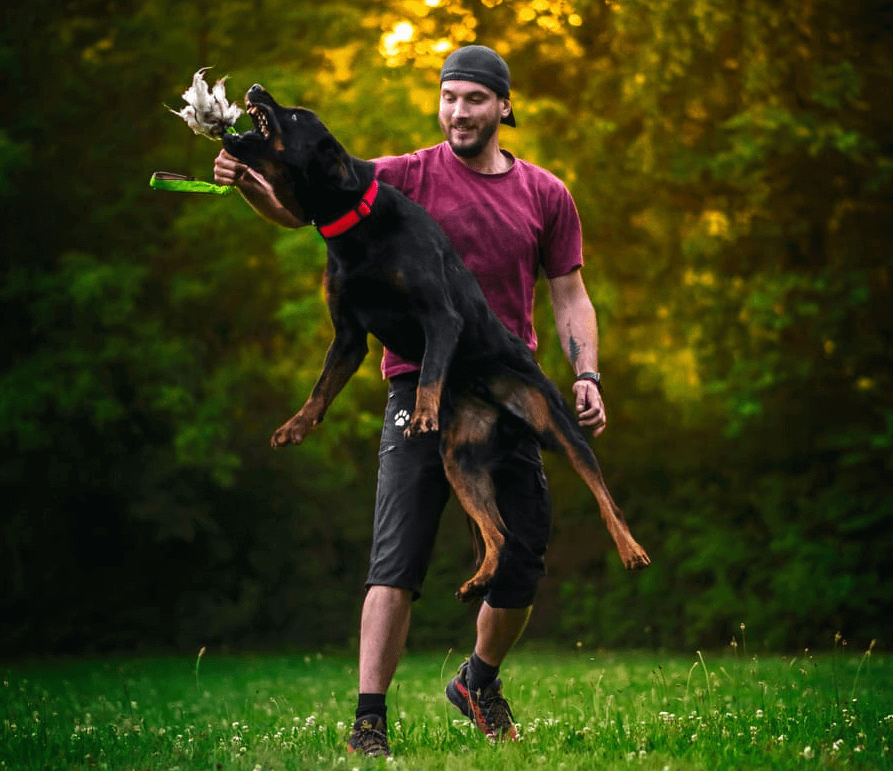
Environmental Rewards
As for training in a more challenging environment, rewards may vary depending on the dog's mood. On the training ground among unknown dogs, your dog may not feel as confident to happily bite the tug toy as you do at home as a reward. Soft treats may be more desirable than hard treats because he eats them faster and doesn't have to be on the lookout for someone to steal them...And if there's a hot female nearby, the only reward for your male will be it will run and you will miss everything else.
How to choose the right treats?
If your dog without responds to the treats, you've won half of the problem. But which one to choose? You should consider the health requirements of your partner (age, diets). And also to research the composition of the commercially produced ones. If there is not a lot of fat, carbohydrates and more. Another important aspect is the size of the treat. For a Chihuahua, 2 cm balls are probably not an ideal reward. The style of feeding is also important – barfarians prefer dried treats or raw/cooked pieces to extruded ones. Nowadays, more and more dog owners bake treats at home in the oven themselves - they simply mix the meat and the best things they want to add to the dog (vitamins, seeds, oils, fruit...) and bake it on a baking sheet as a thin sheet, which they then cut into bits.
Tip: Be careful! Treats should not contain dyes, preservatives or salt. Pay attention to the composition also if the animal suffers from an allergy. 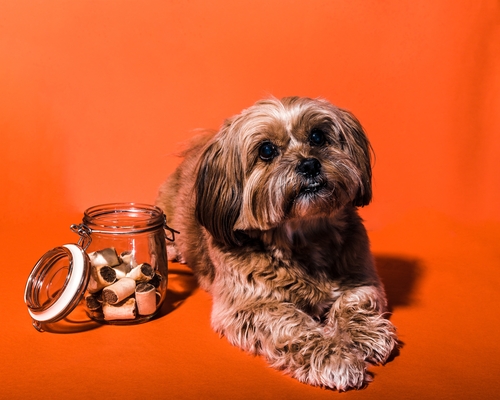
Super jackpot
When working with a dog you will also often need a super jackpot, a big reward for a really good performance or simply a bonus at the end of training. It is useful, for example, when training several exercises in a row or when teaching a particularly demanding command (self-control during training with another dog, not chasing game, etc.). In such a case, don't be afraid to reach for a piece of hard cheese, boiled chicken hearts or extra joyful scratching and cuddling. But stick to the rule that the reward is a snack that doesn't have to distract the dog's attention completely elsewhere for 10 minutes (such as a chew bone).
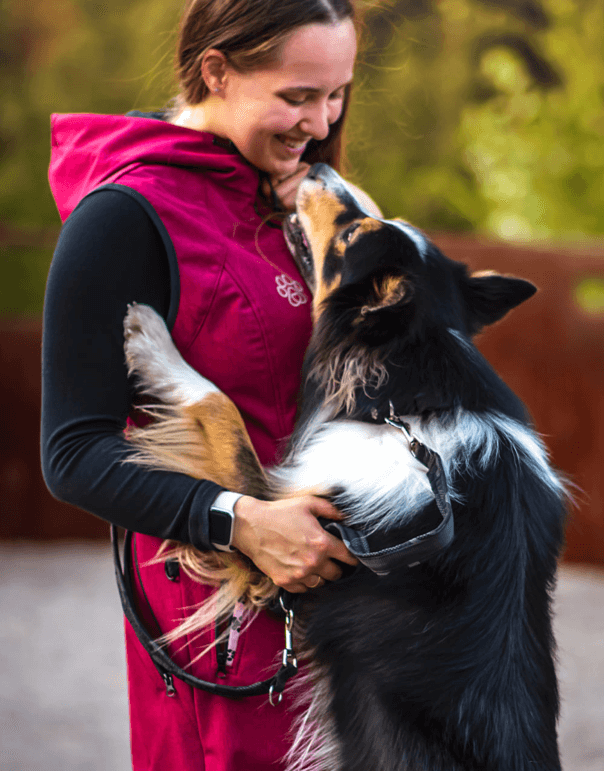
Popularity leaderboard and treat
We recommend gradual by offering different treats, write down on paper what your partner craves the most and what he likes and dislikes. It can come in handy in situations where you really need him to listen. And with all these goodies, you will definitely need the right treat that will match your dog partner!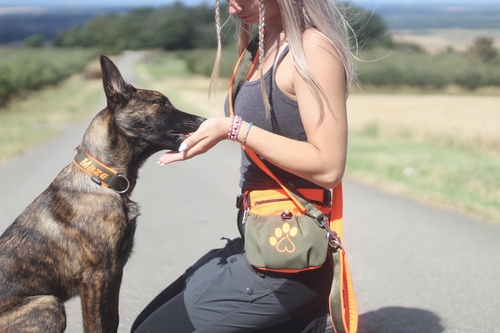
2 is not enough, 3 is too much
During training and rewarding (for example, even when you leave the house and leave the dog an interactive toy filled with treats) you should always consider the amount in the total feed. The more treats, the smaller portion in the bowl. Otherwise, you will cause obesity, diabetes, high cholesterol, joint problems and digestive problems in your dog. So you might have a perfectly trained sidekick, but with a hefty vet bill.
The reward you don't want
In many situations, the dog actually rewards himself, even if you don't want it to. When the training is already demanding for him and he simply leaves – he has just rewarded himself with what he most desired at that moment, i.e. freedom (relief from the position is often the easiest reward you can offer him).
Beware of negative rewards
The reward can be your attention too when he does something you don't want him to do. He barks like he's gone, you scold him for jumping on you, for biting/stretching something when you come home from work. This is called a negative reward and the dog will repeat these things as long as you give them attention for it. Negative reward helps him get what he wants. That is why he creates "bad habits" that are difficult to unlearn - because for them he gets your attention, which he misses so much.
Working with problem dogs
For a dog that has being afraid of something (for example, a dog behind a fence) can at that moment be the reward of releasing an unpleasant situation. For example, by enabling the guide. Be creative and think about the reward (or what he would rather want) every second you spend with him. Watch his body language and the dog will do what he sees in your eyes.
What you didn't know about rewards
Most owners think , that the dog perceives a pat on the head as a reward. However, most dogs find it rather unpleasant. If you reward the dog in this way after being called, in the future he will probably stop about half a meter away from you to avoid this reward-non-reward. Most bull breeds are also thrilled to be able to run after other people and not listen to their owners - because their greatest reward is social interaction with a human and they don't care if it's their master or a stranger.
Watch out for luring! Or luring, for a lot of dogs in a lot of situations the "running away reward" is not a reward.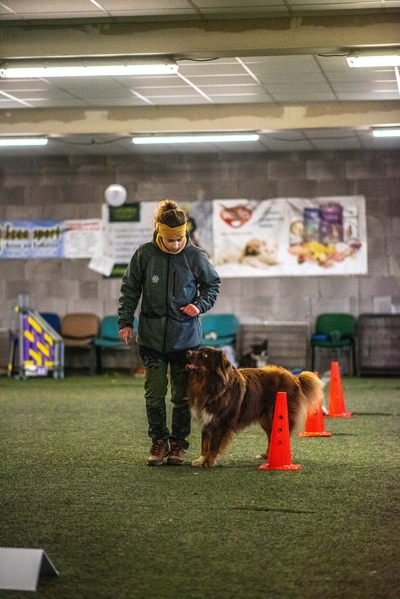
Rewards of Obligation
Dogs are one of the few creatures , who often work even for rewards they don't deserve. Because they love their people and because sometimes a better reward comes along. It then happens that a dog that listened perfectly and was perfectly trained suddenly becomes "lazy" and doesn't want to at all, commands take a long time for him. It may be because he takes treats more out of obligation. He is more interested in the joy he gives you, but he has gotten used to you not showing him any other than a biscuit shoved in front of his nose. Many dogs consider eating a reward to be a command, not a reward.
Finally Advice
Vary the treats, as well as other rewards, during training. That way they will always be interesting for the dog, no one wants to swallow the same piece of biscuit for a job well done all their life. And keep a close eye on your dog. Training is a constant dialogue between you and a good owner listens to his dog.


 Cookie - Settings
Cookie - Settings
